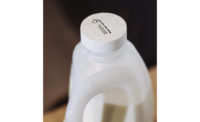With consumer fears escalating about potentially harmful ingredients in food and personal care products, a survey from Daymon Worldwide, Stamford, Conn., reveals that 40% of consumers have lost enjoyment of the foods they eat due to safety and quality concerns, and many are actively seeking stores that offer product alternatives. Nearly twice as many parents as non-parents report these anxieties, according to the study.
“Our study digs deeper into consumer behaviors to find out exactly which ingredients and additives cause them the most concern, how that’s changed in the last five years and what they’re willing to do to avoid them,” says Janet Oak, head of global advisory and custom shopper insights. “Not surprisingly, consumers are most concerned about ingredients that might cause cancer, such as pesticides, fertilizers and unnecessary additives and preservatives. To avoid risk, consumers are much more likely to visit a grocery retailer or a farmers' market than a mass merchandiser, and are even more willing to make things from scratch.”
The study reveals that products that manage, prevent and cure health ailments are having the greatest impact on consumer attitudes about food and personal care products. In fact, 53% of respondents said that their heightened fears are driving greater demand for food and personal care products with fewer ingredients and stricter safety guidelines.
Food safety on the menu
According to the study, one third of respondents are more concerned about food product safety and quality today than a year ago, and 50% are more concerned than five years ago. Specifically, consumers are fearful of the perceived harmful effect on their children’s development due to the presence of MSG, high mercury levels, GMOs, dangerous bacteria, fertilizers and other additives.
Regardless of how accurate concerns are, they are definitely impacting consumer shopping behaviors.
“Consumers are actively taking a variety of measures to avoid the ingredients they’re most worried about, including conducting extensive online research, avoiding stores that offer products with perceived harmful ingredients and spending more money on fresh items considered healthier,” says Oak. “Retailers and suppliers need to be ready to address these concerns and provide solutions that inspire confidence and retain business.”
Private brand opportunities
Huge opportunities exist for retailers ready to leverage their private brands to meaningfully connect with core consumers making purchase decisions based on ingredient fears.
“Our study found that only 22% of consumers believe national brands to be healthier than private brands,” says Oak. “This presents significant business potential for retailers ready to invest in their private brands to surprise and delight their consumers by delivering high-quality, cleaner private brand offerings that also provide savings.”
In addition to partnering with suppliers to offer cleaner ingredient decks in private brand product lines, Oak says all marketing communications about them need to be clear, concise and consistent.
“By making health and wellness an affordable choice for concerned consumers, savvy retailers and suppliers will establish trust that’s well worth the investment,” she adds.
Survey background
In June 2015, Daymon Worldwide’s custom shopper insights team recruited 1,000 respondents, ages 18 and older, to take an online survey regarding their greatest fears about specific ingredients in food and personal care products and how those fears affected shopping behaviors and purchase decisions. The respondents, 50% male and 50% female, were nationally representative across U.S. regions and half of them were parents.



